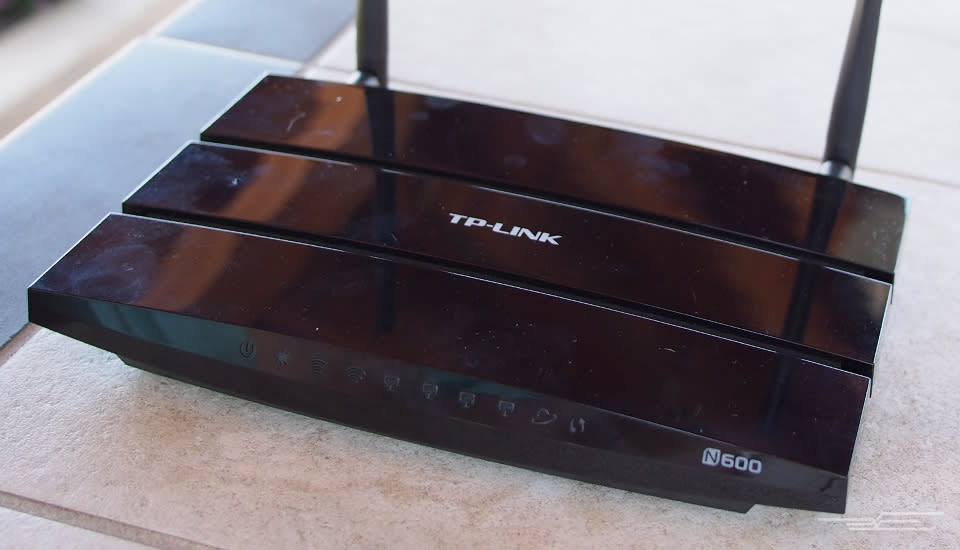Daily Roundup: The best cheap WiFi router, Tim Cook donations and more!

In today's Daily Roundup you can learn about the best cheap WiFi router from our friends at The Wirecutter, read about Tim Cook planning to donate his fortune to charity and how new memory technology may allow SSDs with up to 10TB of storage. Catch up on today's top stories past the break.
This is the best cheap WiFi router
If I wanted the cheapest good WiFi router I could get, I would buy the TP-Link TL-WDR3600. It's a wireless-n router that costs $60 but outperforms some routers that cost twice as much. It took more than 150 hours of research and testing to find our pick. Of the 29 routers we looked at and the seven we tested, the TL-WDR3600 has the best performance for the lowest price.
Introducing Engadget's newest contributor: The Wirecutter!
Starting today, you're going to notice a very familiar contributor popping up on the pages of Engadget. That would be none other than our friends at The Wirecutter. We've long admired The Wirecutter's ability to review as many products in as many categories as it does, and then whittle its findings down to a few sensible picks. Here at Engadget, we review gadgets too, but we mainly stick to a handful of categories -- you know, phones, tablets, laptops, smartwatches, et cetera.
Apple CEO Tim Cook plans to donate his fortune to charity
Tim Cook has big plans for his vast wealth: It's all going to philanthropy, he revealed in a Fortune interview. The Apple CEO -- who's currently worth around $112 million, and holds restricted stock that could be worth up to $665 million -- said he's already been making donations quietly, but he's also looking forward to taking a deeper approach to the whole endeavor. That could involve starting something similar to the Bill and Melinda Gates Foundation, the Microsoft co-founder's non-profit which manages his philanthropic efforts.
You'll soon get 10TB SSDs thanks to new memory tech
SSDs and other flash memory devices will soon get cheaper and larger thanks to big announcements from Toshiba and Intel. Both companies revealed new "3D NAND" memory chips that are stacked in layers to pack in more data, unlike single-plane chips currently used. Toshiba said that it's created the world's first 48-layer NAND, yielding a 16GB chip with boosted speeds and reliability. The Japanese company invented flash memory in the first place and has the smallest NAND cells in the world at 15nm. Toshiba is now giving manufacturers engineering samples, but products using the new chips won't arrive for another year or so.
HTC's lead designer leaves after less than a year
For a tech company that places so much emphasis on design, we can't help but think something's up when one of the key designers leaves. Today, we bring you the sad news that HTC's VP of Industrial Design, Jonah Becker, has announced his departure on Twitter. To our surprise, that's less than a year after he picked up from where his predecessor Scott Croyle left off.
YouTube starts testing silky smooth, ultra HD video quality
YouTube introduced videos that play at 60 frames per second last year and ones viewable in 4K resolution in February. Now, the website is starting to experiment with videos that are both silky smooth and ultra high-def. TechCrunch has spotted a low-key, semi-secret playlist comprised of only six videos that you can choose to play at 60 fps in 4K resolution -- just toggle the settings switch to see the option.
North Korea's must-have gadget is a $50 media player
In North Korea, the gadget you'd probably want is a Notel. Or a Notetel, a word that attempts to shoehorn notebook and television together, describing a pretty unassuming, very popular, Chinese-made media player. According to estimates from Reuters, up to half of all urban-based North Koreans have a Notel stashed somewhere in the house. Now, until recently, the device was only found on black markets, but the device has now been legalized and is apparently available in state-run shops and markets for just fifty bucks.








